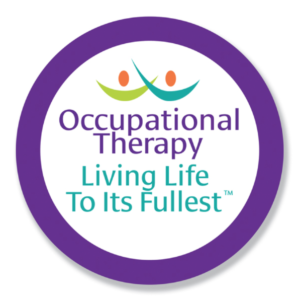Occupational Therapy For Thalidomiders

An understanding of the daily challenges faced by beneficiaries and their level of ability is essential when carrying out an occupational therapy assessment.
Here we provide an insight into the level of these challenges and the objectives for this type of therapy.
The impact of thalidomide
The Thalidomide Trust's vision is that all beneficiaries should have access to the resources and support they need to optimise their quality of life throughout their lifetime.
Many years of using their bodies in ways for which they were not intended, because of their disabilities, has caused consequential damage and has reduced their mobility and independence. In addition, the impact of health problems associated with ageing is generally greater because they are occurring earlier than in the general population and are frequently exacerbated by the original thalidomide damage.
We recently undertook a project, ‘Earlier, greater and longer’, to ensure that our beneficiaries can live their best life possible, independently and with dignity. It aimed to identify current and future needs and to estimate the associated costs.
The project found that beneficiaries live with significantly worse physical and mental health than the general population of similar ages.
Daily challenges faced
The most common health issue is pain, which is experienced by 91% of beneficiaries. The most common sites are the spine and shoulder. Living with pain is exhausting and debilitating and has a significant impact on functionality, mobility, sleep and mood.
Continuing to live a meaningful, fulfilling life, as independently as possible for as long as possible, is crucially important. Adapted homes and vehicles, as well as access to aids, equipment, wheelchairs, and prosthetics are often central to maintaining mobility and independence. In addition, beneficiaries require care, support, respite and social interaction tailored to their individual needs to optimise their quality of life.
At their current level of ability almost all beneficiaries require support with basic day to day tasks, such as:
- Vacuuming
- Ironing
- Gardening
- Bin emptying and cleaning
- DIY
- Basic home maintenance
As a result of deteriorating health and increasing pain, a growing proportion now also require support with:
- Personal care (e.g. dressing, undressing, showering/bathing, toileting), domestic duties (such as food preparation, cooking)
- Administrative tasks (including opening post, help with online banking and shopping)
- Accessing the outside world (help when travelling or shopping)
With ageing, the (often unorthodox) strategies relied on by many beneficiaries to manage daily living will no longer be possible. They will have to accept the use of costly aids, adaptations, and equipment that they have resisted in the past.
OT Assessment Case Studies
![]()
Thalidomiders require varying support strategies depending on their level of damage
